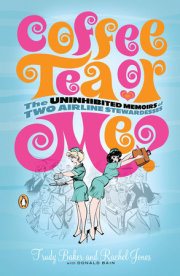Ms. Fletcher learns that the friendly skies aren't so friendly after all.
When Cabot Cove's own Wayne Silverton debuts his new airline, he invites Jessica Fletcher and other locals on the inaugural flight from Boston to London. Jessica is thrilled for the opportunity to visit her dear friend, Scotland Yard Inspector George Sutherland. But the reunion hits turbulence when George is called to the airport to investigate the apparent murder of Wayne Silverton.
Jessica and George decide to put their sleuthing skills together. But there's a full passenger list of suspects-and Jessica's going to have to catch a killer before she can catch a flight home.
“We are about to embark on a new and exciting era in commercial aviation. The days of passengers having their knees jammed into their chins and three-dollar bags of pretzels are over. Today marks the introduction of a sensible and civilized approach to air travel. Passengers on SilverAir will be treated like human beings; people who are willing to spend a little more—and I stress ‘a little more’—can travel in comfort and style. I am extremely gratified that all of you are here today to help launch SilverAir. I see many friends here who are ready to experience this new dimension in air travel, and for the press who will travel with us—well, I hope you’ll write nice things about SilverAir.”
A few members of the press laughed as Wayne Silverton, founder and chairman of SilverAir, stepped down from the portable podium that been erected next to the freshly painted, sky blue 767-200 jet aircraft with the name of the airline emblazoned in silver on both sides and vertically on the stabilizer. The occasion was SilverAir’s inaugural flight from Boston’s Logan International Airport to England’s Stansted International Airport, an increasingly popular airport in the UK for start-up airlines. Located forty-five miles northeast of London, it had become the third busiest airport in the UK—home to forty airlines and handling more than twenty million passengers a year. Arriving there would be a new experience for me. On my many trips to London, Heathrow had always been my destination airport. But I always enjoy deviations from the norm when traveling, and flying on Wayne Silverton’s airline, to a different airport, certainly represented that.
Because the aircraft was parked in a specially designated spot at the airport, away from the main terminal with its Jetway access to planes, we boarded by going up a set of stairs that had been rolled into place. Wayne and his wife, Christine, stood at the foot of the stairs and personally welcomed each passenger.
“Ah, Jessica,” Wayne said, flashing his characteristic broad, brilliant smile. He was a stunningly attractive man by any standard, his perpetually tanned square face providing a contrasting background for very white teeth. “I am so glad that you could find the time in your busy schedule to help us celebrate this special day.”
“I wouldn’t have missed it for the world,” I said. “How exciting to be a guest on a new airline’s maiden flight.”
“I never thought this day would come,” Christine said.
She was as beautiful as her husband was handsome. Christine had been a stewardess for Pan Am until that proud airline eventually went under. Of course, by the time that happened, stewardesses were no longer referred to by that name. They became known as flight attendants, the change having mostly to do with an influx of males working flights. You couldn’t very well refer to them as “stewardesses.” But no matter what they were called, I’ve always had a special fondness and respect for the men and women who make their living at thirty-thousand feet, keeping passengers happy, but most importantly assuring the safety of those in their charge, particularly when emergencies crop up. Fortunately, that was a rare occurrence in modern commercial aviation.
“You must be bursting with pride,” I said.
“And exhaustion,” Christine replied, the smile never leaving her finely chiseled, classically beautiful face. “But all the hard work was worth it, especially having so many of Wayne’s friends from Cabot Cove with us this morning.”
Wayne Silverton had been born and raised in Cabot Cove, Maine. A standout high school athlete—football, basketball, and track—he went to Purdue University on a full scholarship, majoring in aeronautical engineering, a discipline for which that Indiana university is well-known. It was assumed that he would forge a career in engineering, which was where he started out after serving three years as an officer in the air force. He was hired by Pan Am and quickly rose through its ranks to become executive vice president of that once dominant airline, which was where he met, and wooed, Christine. But an indomitable entrepreneurial spirit had taken hold of him, and he left the airline to join a well-financed real estate consortium that bought a series of small, unprofitable casinos and hotels in Las Vegas. The group renovated them into attractive properties, resulting in their sale for many millions more than the group had paid. Those deals made Wayne a rich man, and he left that real estate partnership to form his own construction company, building high-rise condominiums in that gambling Mecca. Unfortunately, he was ahead of the curve; it would be years before the condominium craze in Vegas caught hold. According to what I read in the business press, Wayne eventually fell on hard times, and it was rumored that he was on the brink of bankruptcy.
A few years later, I was surprised, and delighted, to read that he’d put together financing to launch a new airline, SilverAir. Shortly after that announcement, he and Christine returned to Cabot Cove to bask in the accolades thrown his way—local boy makes good, again—and to tout the airline to local civic and professional groups. That’s when I renewed my acquaintance with him and Christine, and I’d followed the progress of his start-up airline leading to the day when I, along with others from the town, received an invitation to join a group of dignitaries, members of the press, and friends on the upstart airline’s maiden voyage to England.
“But you are going, aren’t you?” I said to my friend of many years, Dr. Seth Hazlitt, who’d also received an invitation from Wayne Silverton.
“I can’t say I’m much inclined,” he replied. “You know I’ve never been a fan of flying. Bad enough on one of the big established airlines. But this one is brand spankin’ new. Might be smart to wait til’ they’ve gotten the kinks out.”
“It doesn’t seem to me that being new means much,” Mort Metzger, our sheriff, chimed in. We were having breakfast together at Mara’s, our favorite local eatery down at the Cabot Cove dock. “I’m sure Silverton wouldn’t get involved with anything unsafe.”
“You’re just parroting what Maureen says,” Seth said. “I’m sure she’s chompin’ at the bit to go. Your wife is always up for going somewhere.”
“She’s adventurous, that’s true,” Mort said, “but—”
“Wayne Silverton was always a little too slick for my taste,” Seth said, spearing the final piece of blueberry pancake on his plate. “Made his money out in Las Vegas. Sounds a bit fishy to me.”
“It’s a big city, Doc. Lots of people make money there,” Mort said.
“There may have been times he had to be ‘slick,’ as you term it, Seth, to have been so successful in business,” I said in Wayne’s defense. “Big business can be cutthroat.”
“Well,” Seth said, patting his mouth with his napkin and leaning back in his seat, “be that as it may, I’ll have to give this inaugural flight business a little more thought.”
Mara, who’d been busy in the kitchen, came to the table, a pot of coffee in her hand. She topped off Mort’s cup. “I’ve got another pot of decaf brewing,” she said to Seth and me. “Everything else to your satisfaction?”
“Always is,” Mort said.
“So?” Mara asked, taking in the three of us. “Are you going to Boston to be on SilverAir’s first flight?”
“Looks like Mrs. F., Maureen, and I are,” Mort replied. “Doc here, he’s not so sure.”
“He just likes to be convinced. Isn’t that right, Doc?” Mara gave me a sly wink.
Seth grunted but didn’t reply.
“You couldn’t get me on one of those things for all the money in the world,” she said.
“You’ve never flown, Mara?” Mort asked.
“Never have, never will. Don’t see any wings on this back, do you? Until you do, I’ll stay right here. Man wasn’t made to fly.”
“He wasn’t made to drive, either, Mara,” Seth said, “but I notice you get around town in a car.”
“That’s different,” she said, taking Seth’s plate before he could scrape up the last bit of syrup with his fork.
The bell over the door rang, and we all turned as Cabot Cove’s mayor, Jim Shevlin, entered the luncheonette.
“Good morning, Your Honor,” Seth said as Shevlin pulled up a chair.
“Good morning, all,” Shevlin said. To Mara: “A dry English muffin, if you don’t mind, and—”
“A bowl of fruit,” she finished for him. “Be right back.”
“On a diet?” Mort asked.
“I’m always on a diet,” the mayor said. “So, I understand you’ve been invited on SilverAir’s first trip, too.”
“That’s right,” I said.
“Susan and I are really looking forward to it,” Shevlin said. “It was nice of Wayne to remember his Cabot Cove roots, especially since we haven’t seen the man in a few years, except in the news recently every now and then. Jenkins and Marterella were invited and are going, too.” Richard Jenkins and Sal Marterella were members of our city council. “Lucky for us Silverton doesn’t do any business with the town, so there’s no conflict. I understand there were some state officials on the invite list, but they turned him down. Still, Maine’ll be well represented. Jed Richardson told me he and the missus plan on making the flight.” Jed was a former airline pilot who’d retired, returned to Cabot Cove with his wife, Barbara, and established his own small charter airline, as well as a flight school. I’d taken flying lessons from him and earned my private pilot’s license.
Mort and I looked at Seth. I said, “How can you not join everyone, Seth?”
Mort said, “Silverton’ll feel insulted if Cabot Cove’s leading physician turns him down.”
“I said I’d think about it and I will,” Seth said, standing and laying money on the table. “Right now I’ve got me a waiting room full of patients who need”—he looked down at Mort—“who need Cabot Cove’s leading physician. Good day, everyone.”
I went up the steps leading into the 767 aircraft, followed by Seth Hazlitt, the Metzgers, the Shevlins, and other guests invited to experience the new airline on its first commercial flight to London.
A flight attendant dressed in a silver jumpsuit with blue accessories welcomed us aboard.
“What a stunning uniform,” I told her.
“Isn’t it beautiful?” she said, turning to allow me to view it from another angle. “Wayne—Mr. Silverton—hired top Italian designers. I feel like a movie star in it.”
I laughed. “And you look like one, too,” I said. The name on her ID tag read Gina Molnari. I didn’t know her nationality, but she could have given the most glamorous of Italian and Greek actresses a run for their money where looks were concerned. Her eyes were large and dark. Her smooth skin was a light olive color, her hair pitch black. And her outfit looked as though it had been tailored to perfectly fit her decidedly female form.
She greeted Seth, who was directly behind me, and I walked ahead to take in the aircraft’s interior. It looked vastly different than any commercial airliner I’d been on in the past few years. The wide-body jet hadn’t been configured into different classes. There was no partition for a first class or business class compartment. Instead the spacious interior was wide open and contained far fewer seats than was usual. A second flight attendant, as attractive as the first, said after reading my name tag, “Just a hundred and two seats, Mrs. Fletcher. Plenty of room to stretch out and enjoy the flight.”
“It certainly looks comfortable,” I said, continuing to inspect my surroundings. A great deal of money had obviously been spent designing and creating the single-class cabin. Everything was silver and blue, with small, tasteful touches of red to add visual contrast.
“Take any seat,” the flight attendant said. “There are no assigned seats on this special flight.”
The 102 seats in the spacious cabin were designed to swivel so that four people could create a conversation area. Seth, the Metzgers, and I manipulated them into that arrangement and sat to look through the packet of reading material that had been left on each seat. I glanced up at a video extolling SilverAir, which ran on state-of-the-art screens suspended from the ceiling.
Once we had settled into our seats, a third flight attendant, this one a young man wearing a masculine variation of what the women wore, came to offer drinks. “My name’s John Slater,” he said pleasantly. He was a good-looking fellow, of medium build, slender, with large, sensuous eyes and wavy dark brown hair that fell softly over his brow. “I’ll be one of your flight attendants for this flight.”
“Wonderful meeting you,” I said. “This is very exciting, being on a maiden flight.”
“I’m excited, too,” he said, giving forth with an engaging smile. “I’m really happy to be working for SilverAir. I think passengers are going to come aboard as happy campers.” He laughed. “That’s not the case with the last airline I worked for. Hundreds of angry people on every flight. Mr. Silverton has the right idea: charge a little more and give a lot more. Welcome aboard.”
We all ordered juices; it was a little too early in the day for anything stronger.The cabin quickly filled up. Spirits were high, and there were a lot of “oohs” and “aahs” as people reacted to the posh cabin. Because we would be in London for only two nights, people had brought a minimal amount of luggage, and stowed most of it in overhead bins. Maureen Metzger, however, who was affectionately known to friends who traveled with her as the “Luggage Queen,” had packed as though we’d be away for two weeks, much to Mort’s chagrin, although he was a good sport about it.
“Pretty nice plane, huh, Doc?” Mort said. “Glad you decided to come along?”
“It doesn’t matter how pretty it is, Mort. What counts are those two engines hanging from the wings. And I’ll tell you how glad I am at the end of the trip, if they function correctly and we land safely.”
As drinks were being served, Wayne Silverton moved through the cabin, chatting with his guests and making everyone feel at home. He stopped to speak with us. As he did, I looked past him to where his wife, Christine, was engaged in an animated, I’d even say angry, conversation with the flight attendant who’d greeted us as we boarded. I couldn’t make out their words, but it was evident that Christine was not happy with something the beautiful Gina had said or done. Christine straightened her back and turned sharply in our direction, with her features relaxed back into a serene expression, a smile on her lips. The flight attendant, however, couldn’t cover her emotions so swiftly. She fixed Christine’s retreating form with a hateful stare.
Oh, my, I thought as I returned my attention to Wayne, who was spouting forth on his determination to fix what was wrong with commercial aviation.
“We’ll talk more once we’re airborne,” he said. “Wouldn’t want to hold up the departure. We’re anticipating a very smooth flight. Sit back and enjoy the trip. You’re about to experience air travel the way it used to be—and should be.”
No turbulence expected outside, I thought, and with a bit of luck we would have the same conditions onboard. I hoped the exchange between the two women wouldn’t be a harbinger of things to come.
About
Ms. Fletcher learns that the friendly skies aren't so friendly after all.
When Cabot Cove's own Wayne Silverton debuts his new airline, he invites Jessica Fletcher and other locals on the inaugural flight from Boston to London. Jessica is thrilled for the opportunity to visit her dear friend, Scotland Yard Inspector George Sutherland. But the reunion hits turbulence when George is called to the airport to investigate the apparent murder of Wayne Silverton.
Jessica and George decide to put their sleuthing skills together. But there's a full passenger list of suspects-and Jessica's going to have to catch a killer before she can catch a flight home.
Author
Excerpt
“We are about to embark on a new and exciting era in commercial aviation. The days of passengers having their knees jammed into their chins and three-dollar bags of pretzels are over. Today marks the introduction of a sensible and civilized approach to air travel. Passengers on SilverAir will be treated like human beings; people who are willing to spend a little more—and I stress ‘a little more’—can travel in comfort and style. I am extremely gratified that all of you are here today to help launch SilverAir. I see many friends here who are ready to experience this new dimension in air travel, and for the press who will travel with us—well, I hope you’ll write nice things about SilverAir.”
A few members of the press laughed as Wayne Silverton, founder and chairman of SilverAir, stepped down from the portable podium that been erected next to the freshly painted, sky blue 767-200 jet aircraft with the name of the airline emblazoned in silver on both sides and vertically on the stabilizer. The occasion was SilverAir’s inaugural flight from Boston’s Logan International Airport to England’s Stansted International Airport, an increasingly popular airport in the UK for start-up airlines. Located forty-five miles northeast of London, it had become the third busiest airport in the UK—home to forty airlines and handling more than twenty million passengers a year. Arriving there would be a new experience for me. On my many trips to London, Heathrow had always been my destination airport. But I always enjoy deviations from the norm when traveling, and flying on Wayne Silverton’s airline, to a different airport, certainly represented that.
Because the aircraft was parked in a specially designated spot at the airport, away from the main terminal with its Jetway access to planes, we boarded by going up a set of stairs that had been rolled into place. Wayne and his wife, Christine, stood at the foot of the stairs and personally welcomed each passenger.
“Ah, Jessica,” Wayne said, flashing his characteristic broad, brilliant smile. He was a stunningly attractive man by any standard, his perpetually tanned square face providing a contrasting background for very white teeth. “I am so glad that you could find the time in your busy schedule to help us celebrate this special day.”
“I wouldn’t have missed it for the world,” I said. “How exciting to be a guest on a new airline’s maiden flight.”
“I never thought this day would come,” Christine said.
She was as beautiful as her husband was handsome. Christine had been a stewardess for Pan Am until that proud airline eventually went under. Of course, by the time that happened, stewardesses were no longer referred to by that name. They became known as flight attendants, the change having mostly to do with an influx of males working flights. You couldn’t very well refer to them as “stewardesses.” But no matter what they were called, I’ve always had a special fondness and respect for the men and women who make their living at thirty-thousand feet, keeping passengers happy, but most importantly assuring the safety of those in their charge, particularly when emergencies crop up. Fortunately, that was a rare occurrence in modern commercial aviation.
“You must be bursting with pride,” I said.
“And exhaustion,” Christine replied, the smile never leaving her finely chiseled, classically beautiful face. “But all the hard work was worth it, especially having so many of Wayne’s friends from Cabot Cove with us this morning.”
Wayne Silverton had been born and raised in Cabot Cove, Maine. A standout high school athlete—football, basketball, and track—he went to Purdue University on a full scholarship, majoring in aeronautical engineering, a discipline for which that Indiana university is well-known. It was assumed that he would forge a career in engineering, which was where he started out after serving three years as an officer in the air force. He was hired by Pan Am and quickly rose through its ranks to become executive vice president of that once dominant airline, which was where he met, and wooed, Christine. But an indomitable entrepreneurial spirit had taken hold of him, and he left the airline to join a well-financed real estate consortium that bought a series of small, unprofitable casinos and hotels in Las Vegas. The group renovated them into attractive properties, resulting in their sale for many millions more than the group had paid. Those deals made Wayne a rich man, and he left that real estate partnership to form his own construction company, building high-rise condominiums in that gambling Mecca. Unfortunately, he was ahead of the curve; it would be years before the condominium craze in Vegas caught hold. According to what I read in the business press, Wayne eventually fell on hard times, and it was rumored that he was on the brink of bankruptcy.
A few years later, I was surprised, and delighted, to read that he’d put together financing to launch a new airline, SilverAir. Shortly after that announcement, he and Christine returned to Cabot Cove to bask in the accolades thrown his way—local boy makes good, again—and to tout the airline to local civic and professional groups. That’s when I renewed my acquaintance with him and Christine, and I’d followed the progress of his start-up airline leading to the day when I, along with others from the town, received an invitation to join a group of dignitaries, members of the press, and friends on the upstart airline’s maiden voyage to England.
“But you are going, aren’t you?” I said to my friend of many years, Dr. Seth Hazlitt, who’d also received an invitation from Wayne Silverton.
“I can’t say I’m much inclined,” he replied. “You know I’ve never been a fan of flying. Bad enough on one of the big established airlines. But this one is brand spankin’ new. Might be smart to wait til’ they’ve gotten the kinks out.”
“It doesn’t seem to me that being new means much,” Mort Metzger, our sheriff, chimed in. We were having breakfast together at Mara’s, our favorite local eatery down at the Cabot Cove dock. “I’m sure Silverton wouldn’t get involved with anything unsafe.”
“You’re just parroting what Maureen says,” Seth said. “I’m sure she’s chompin’ at the bit to go. Your wife is always up for going somewhere.”
“She’s adventurous, that’s true,” Mort said, “but—”
“Wayne Silverton was always a little too slick for my taste,” Seth said, spearing the final piece of blueberry pancake on his plate. “Made his money out in Las Vegas. Sounds a bit fishy to me.”
“It’s a big city, Doc. Lots of people make money there,” Mort said.
“There may have been times he had to be ‘slick,’ as you term it, Seth, to have been so successful in business,” I said in Wayne’s defense. “Big business can be cutthroat.”
“Well,” Seth said, patting his mouth with his napkin and leaning back in his seat, “be that as it may, I’ll have to give this inaugural flight business a little more thought.”
Mara, who’d been busy in the kitchen, came to the table, a pot of coffee in her hand. She topped off Mort’s cup. “I’ve got another pot of decaf brewing,” she said to Seth and me. “Everything else to your satisfaction?”
“Always is,” Mort said.
“So?” Mara asked, taking in the three of us. “Are you going to Boston to be on SilverAir’s first flight?”
“Looks like Mrs. F., Maureen, and I are,” Mort replied. “Doc here, he’s not so sure.”
“He just likes to be convinced. Isn’t that right, Doc?” Mara gave me a sly wink.
Seth grunted but didn’t reply.
“You couldn’t get me on one of those things for all the money in the world,” she said.
“You’ve never flown, Mara?” Mort asked.
“Never have, never will. Don’t see any wings on this back, do you? Until you do, I’ll stay right here. Man wasn’t made to fly.”
“He wasn’t made to drive, either, Mara,” Seth said, “but I notice you get around town in a car.”
“That’s different,” she said, taking Seth’s plate before he could scrape up the last bit of syrup with his fork.
The bell over the door rang, and we all turned as Cabot Cove’s mayor, Jim Shevlin, entered the luncheonette.
“Good morning, Your Honor,” Seth said as Shevlin pulled up a chair.
“Good morning, all,” Shevlin said. To Mara: “A dry English muffin, if you don’t mind, and—”
“A bowl of fruit,” she finished for him. “Be right back.”
“On a diet?” Mort asked.
“I’m always on a diet,” the mayor said. “So, I understand you’ve been invited on SilverAir’s first trip, too.”
“That’s right,” I said.
“Susan and I are really looking forward to it,” Shevlin said. “It was nice of Wayne to remember his Cabot Cove roots, especially since we haven’t seen the man in a few years, except in the news recently every now and then. Jenkins and Marterella were invited and are going, too.” Richard Jenkins and Sal Marterella were members of our city council. “Lucky for us Silverton doesn’t do any business with the town, so there’s no conflict. I understand there were some state officials on the invite list, but they turned him down. Still, Maine’ll be well represented. Jed Richardson told me he and the missus plan on making the flight.” Jed was a former airline pilot who’d retired, returned to Cabot Cove with his wife, Barbara, and established his own small charter airline, as well as a flight school. I’d taken flying lessons from him and earned my private pilot’s license.
Mort and I looked at Seth. I said, “How can you not join everyone, Seth?”
Mort said, “Silverton’ll feel insulted if Cabot Cove’s leading physician turns him down.”
“I said I’d think about it and I will,” Seth said, standing and laying money on the table. “Right now I’ve got me a waiting room full of patients who need”—he looked down at Mort—“who need Cabot Cove’s leading physician. Good day, everyone.”
I went up the steps leading into the 767 aircraft, followed by Seth Hazlitt, the Metzgers, the Shevlins, and other guests invited to experience the new airline on its first commercial flight to London.
A flight attendant dressed in a silver jumpsuit with blue accessories welcomed us aboard.
“What a stunning uniform,” I told her.
“Isn’t it beautiful?” she said, turning to allow me to view it from another angle. “Wayne—Mr. Silverton—hired top Italian designers. I feel like a movie star in it.”
I laughed. “And you look like one, too,” I said. The name on her ID tag read Gina Molnari. I didn’t know her nationality, but she could have given the most glamorous of Italian and Greek actresses a run for their money where looks were concerned. Her eyes were large and dark. Her smooth skin was a light olive color, her hair pitch black. And her outfit looked as though it had been tailored to perfectly fit her decidedly female form.
She greeted Seth, who was directly behind me, and I walked ahead to take in the aircraft’s interior. It looked vastly different than any commercial airliner I’d been on in the past few years. The wide-body jet hadn’t been configured into different classes. There was no partition for a first class or business class compartment. Instead the spacious interior was wide open and contained far fewer seats than was usual. A second flight attendant, as attractive as the first, said after reading my name tag, “Just a hundred and two seats, Mrs. Fletcher. Plenty of room to stretch out and enjoy the flight.”
“It certainly looks comfortable,” I said, continuing to inspect my surroundings. A great deal of money had obviously been spent designing and creating the single-class cabin. Everything was silver and blue, with small, tasteful touches of red to add visual contrast.
“Take any seat,” the flight attendant said. “There are no assigned seats on this special flight.”
The 102 seats in the spacious cabin were designed to swivel so that four people could create a conversation area. Seth, the Metzgers, and I manipulated them into that arrangement and sat to look through the packet of reading material that had been left on each seat. I glanced up at a video extolling SilverAir, which ran on state-of-the-art screens suspended from the ceiling.
Once we had settled into our seats, a third flight attendant, this one a young man wearing a masculine variation of what the women wore, came to offer drinks. “My name’s John Slater,” he said pleasantly. He was a good-looking fellow, of medium build, slender, with large, sensuous eyes and wavy dark brown hair that fell softly over his brow. “I’ll be one of your flight attendants for this flight.”
“Wonderful meeting you,” I said. “This is very exciting, being on a maiden flight.”
“I’m excited, too,” he said, giving forth with an engaging smile. “I’m really happy to be working for SilverAir. I think passengers are going to come aboard as happy campers.” He laughed. “That’s not the case with the last airline I worked for. Hundreds of angry people on every flight. Mr. Silverton has the right idea: charge a little more and give a lot more. Welcome aboard.”
We all ordered juices; it was a little too early in the day for anything stronger.The cabin quickly filled up. Spirits were high, and there were a lot of “oohs” and “aahs” as people reacted to the posh cabin. Because we would be in London for only two nights, people had brought a minimal amount of luggage, and stowed most of it in overhead bins. Maureen Metzger, however, who was affectionately known to friends who traveled with her as the “Luggage Queen,” had packed as though we’d be away for two weeks, much to Mort’s chagrin, although he was a good sport about it.
“Pretty nice plane, huh, Doc?” Mort said. “Glad you decided to come along?”
“It doesn’t matter how pretty it is, Mort. What counts are those two engines hanging from the wings. And I’ll tell you how glad I am at the end of the trip, if they function correctly and we land safely.”
As drinks were being served, Wayne Silverton moved through the cabin, chatting with his guests and making everyone feel at home. He stopped to speak with us. As he did, I looked past him to where his wife, Christine, was engaged in an animated, I’d even say angry, conversation with the flight attendant who’d greeted us as we boarded. I couldn’t make out their words, but it was evident that Christine was not happy with something the beautiful Gina had said or done. Christine straightened her back and turned sharply in our direction, with her features relaxed back into a serene expression, a smile on her lips. The flight attendant, however, couldn’t cover her emotions so swiftly. She fixed Christine’s retreating form with a hateful stare.
Oh, my, I thought as I returned my attention to Wayne, who was spouting forth on his determination to fix what was wrong with commercial aviation.
“We’ll talk more once we’re airborne,” he said. “Wouldn’t want to hold up the departure. We’re anticipating a very smooth flight. Sit back and enjoy the trip. You’re about to experience air travel the way it used to be—and should be.”
No turbulence expected outside, I thought, and with a bit of luck we would have the same conditions onboard. I hoped the exchange between the two women wouldn’t be a harbinger of things to come.
Notifications




































































